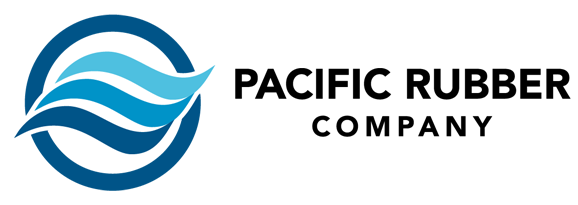Gaskets
Gaskets play a pivotal role in the rubber industry, serving as essential components that facilitate leak-proof seals and connections in various applications. These versatile pieces of rubber engineering find extensive use in industries ranging from automotive to manufacturing, ensuring the efficient functioning of machinery and preventing the escape of fluids or gases. Composed of elastomeric materials, gaskets exhibit remarkable elasticity, durability, and resistance to a wide range of environmental factors, making them indispensable in critical operations.
In the rubber industry, gaskets are manufactured using advanced molding and cutting techniques. The process involves shaping rubber compounds into specific geometries that match the contours of mating surfaces, thus forming an airtight or watertight seal when compressed between two parts. The choice of rubber material is critical and depends on the intended application. Silicone, neoprene, nitrile, EPDM, and Viton are commonly used rubber compounds due to their unique properties, such as high temperature resistance, chemical inertness, or elasticity.
Automotive applications constitute a substantial portion of gasket utilization within the rubber industry. Gaskets are found in engines, transmissions, and exhaust systems, providing secure seals that prevent the leakage of fluids like oil, coolant, and exhaust gases. Additionally, the rubber industry produces custom gaskets for industrial machinery, pipelines, and equipment subjected to extreme temperatures and pressures. In these scenarios, gaskets ensure operational safety, enhance performance, and contribute to the overall reliability of systems.
Gaskets’ significance extends beyond mechanical applications to encompass a crucial role in maintaining environmental sustainability. Gaskets contribute to energy efficiency by minimizing leaks in pipelines and industrial processes, reducing resource wastage and emissions. By preventing the escape of harmful substances, gaskets aid in maintaining workplace safety and complying with stringent regulatory standards.
Gaskets stand as vital components within the rubber industry, fulfilling the critical function of sealing and preventing leaks in a diverse array of applications. Their flexibility, durability, and resistance to various conditions make them invaluable in ensuring the efficient operation of machinery, from automobiles to industrial systems. The rubber industry’s constant innovation in gasket design and material selection continues to drive advancements that enhance performance, safety, and environmental responsibility across numerous sectors.

We are positioned to provide affordable solutions for long or short runs thanks to our flexible molding production capabilities and custom rubber compositions. To fully comprehend their difficulties and offer them specialized solutions, we collaborate closely with our customers. To kickstart your production, we also provide help with tool design.
Common Name:
Molded Slabs (FINISH)
Generally Resistant To:
Moderate Chemicals and Acids, Ozone, Oils, Fats, Greases, and Solvents
ASTM D 2000 / SAE J200 Classification:
BC, BE
Chemical Name:
Polychloroprene
Generally Attacked By:
Esters, Ketones, Chloronated, Aromatic and Nitro Hydrocarbons
MIL-R-3065 / SAE J-14 / MIL-STD-417 Classification:
SC
ASTM D-1418 Designation:
CR
Elongation:
100% to 800%
Hardness Range (Durometer Shore A):
20 to 95
Compression Set:
Good
Abrasion Resistance:
Very Good to Excellent
Impact Resistance:
Good to Excellent
Rebound Rating:
Fair to Very Good
Tear Resistance:
Good
Flame Resistance:
Very Good to Excellent
Flex Cracking Resistance:
Good to Very Good
Minimum Service Temperature:
-30°F to -70°F
Maximum Service Temperature:
+220°F to +280°F
Recommended Shelf Life:
5 to 10 years
Ozone Resistance:
Good
Steam Resistance:
Poor to Good
Weather Resistance:
Poor to Good
Oxidization Resistance:
Good
Gas Permeability:
Fair to Good
Sunlight Resistance:
Good to Very Good
Water Resistance:
Excellent
Radiation Resistance:
Good, 1 x 105 Ga Gy
Poor, 9 x 105 Ga Gy
Acetone:
Minor to Moderate Effect
Amonium Hydroxide:
Recommended: Little to Minor Effect
Animal Fats:
Minor to Moderate Effect
Carbon Dioxide:
Minor to Moderate Effect
Chlorine:
DRY: Moderate to Severe Effect
WET: NOT RECOMMENDED
Fluorine (Liquid):
– – –
Fuel Oil:
Minor to Moderate Effect
Gasoline:
Minor to Moderate Effect
Hydrochloric Acid 37%:
HOT: NOT RECOMMENDED
COLD: Minor to Moderate Effect
Hydrochloric Acid Concentrate 37%:
HOT: NOT RECOMMENDED
COLD: Minor to Moderate Effect
Kerosene:
Moderate to Severe Effect
Methyl Ethyl Ketone:
NOT RECOMMENDED
Mineral Oil:
Minor to Moderate Effect
Naptha:
Moderate to Severe Effect
Natural Gas:
RECOMMENDED: Little or Minor Effect
Nitric Acid:
Concentrate: Moderate to Severe Effect
Dillute: RECOMMENDED: Little or Minor Effect
Red Fuming: Minor to Moderate Effect
Petroleum:
Below 250: Minor to Moderate Effect
Above 250: NOT RECOMMENDED
Phosphoric Acid:
20%: Minor to Moderate Effect
45%: Minor to Moderate Effect
Propane:
NOT RECOMMENDED
Salt Water:
RECOMMENDED: Little or Minor Effect
Skydrol:
Skydrol 500: NOT RECOMMENDED
Skydrol 7000: NOT RECOMMENDED
Sodium Hydroxide:
RECOMMENDED: Little or Minor Effect
Sulfuric Acid:
Concentrate: NOT RECOMMENDED
Dillute: Minor to Moderate Effect
20% Oleum: NOT RECOMMENDED
Toluene:
NOT RECOMMENDED
Transformer Oil:
Minor to Moderate Effect
Vegetable Oils:
Minor to Moderate Effect
Vinegar:
RECOMMENDED: Little or Minor Effect
- Actual shelf life could vary dramatically based on storage conditions
- Store in a cool, dry place with temperature below 75°F
- Keep away from direct heat or open flames
- Avoid contact with solvents or other fluids
- Do not store in direct sunlight
- Keep products wrapped or sealed to minimize the absorption of moisture
- Store in a relaxed condition free from tension, compression or other deformation
See Rubber Storage Conditions for more information about how to properly store your rubber products.

